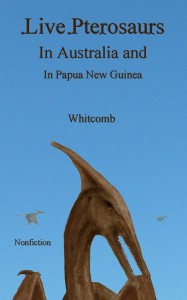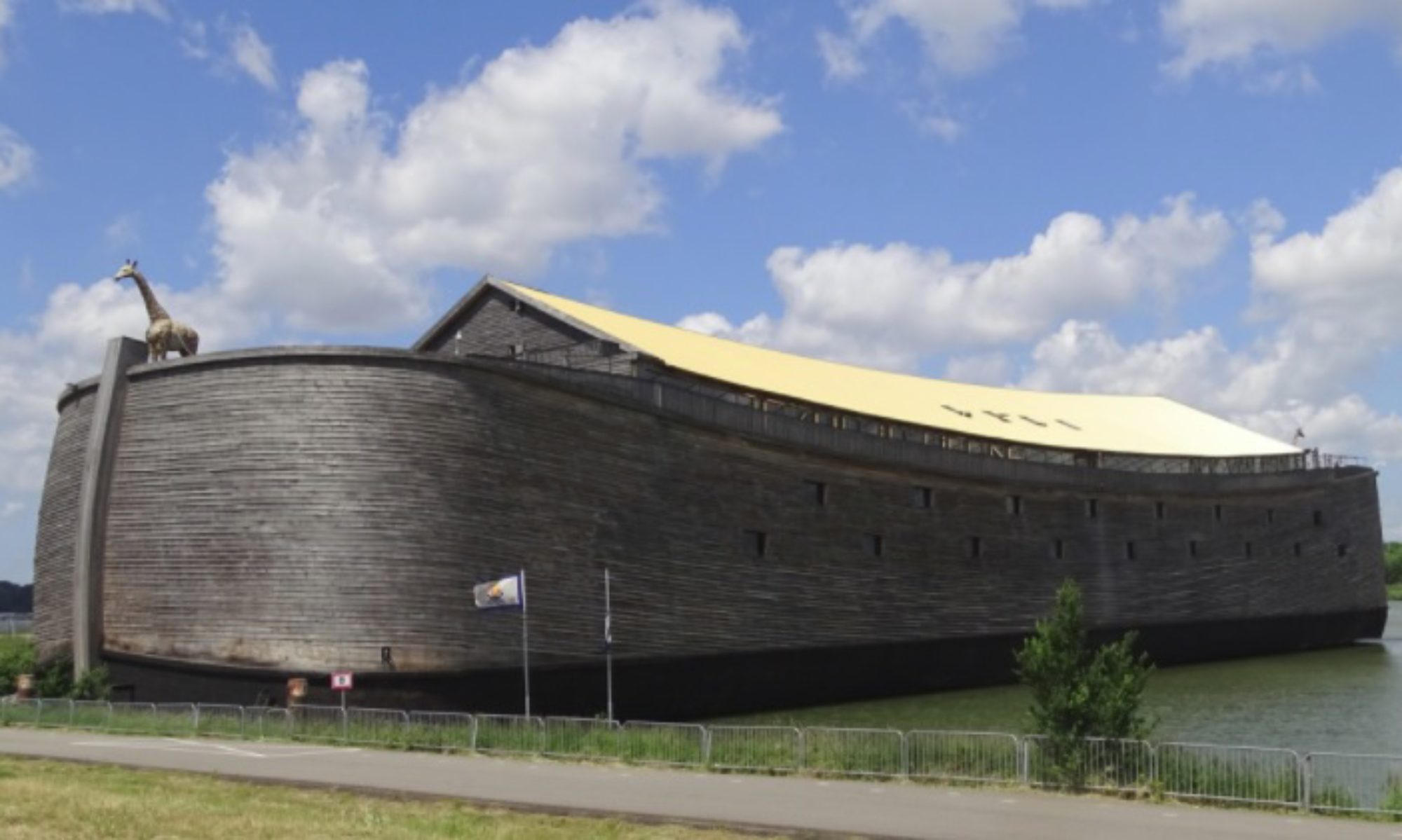Book Review on Amazon
On April 12, 2013, a skeptic of pterosaur sightings posted a brief review on Amazon, dismissing my recently published book Live Pterosaurs in Australia and in Papua New Guinea. At first, the review appeared to me a mistake or a dishonest attack, for my book examines many sightings of apparent pterosaurs and emphasizes four critical encounters, four pillars of cryptozoological credibility in my opinion, not just “two” reports; I thought perhaps “WS” referred to a different book, not mine. After looking more closely, I noticed the adjective “intriguing:” The critic wrote, “The book really consists of one or two intriguing reports.” But the other adjective, “really,” can mislead people into thinking my book examines no more than two eyewitness sightings, which is far from the truth.
Perhaps WS gave my book two stars instead of one because the reviewer found one or two of the reports intriguing; WS doesn’t say. But I’ll address some of the criticisms.
I was also struck by the title of the book review, “more religion than investigation,” for I had carefully avoided including any preaching while writing Live Pterosaurs in Australia and in Papua New Guinea (LPAPNG). This is a cryptozoology book that exhorts open-minded examination of eyewitness evidence, nothing like a book on religion. Part of one page refers to the non-religious accomplishments of a few Biblical creationist explorers, their interviews with natives in Papua New Guinea, but that hardly changes the genre of the book: “cryptozoology.”
False “Racism” Statement
I have done a word scanning of this book. The words completely absent include:
- racism
- race
- aboriginal
Nobody will find any of those words in the book, for they’re absent.
The reviewer wrote the following:
He describes science . . . and even equates it with racism . . .
At first, the comment on racism lead me to suspect the person writing this review had not read my book but some other publication instead, or had read more than one author and had become confused. Never in my life have I written anything that even hinted at the idea that science “equates” “with racism.” I then scanned the book for the word “native” and found nothing supporting the critic’s words, but I found two statements almost relevant:
The natives were not trying to deceive us into believing in a fictional creature, contrary to what some American critics later proclaimed. [from the chapter “Another Expedition on Umboi Island”]
Was WS thinking that accusing natives of dishonesty is racism? I can see that possibility. But why would the critic believe that “some American critics” equates with “science?”
WS says that I complain “that scientists no longer believe in human honesty.” Where did I say that? Searching again in the book, scanning it for “lie,” (equivalent to “deceive” and related to “honesty”), I found the following in the first chapter:
On that point, I have found many rejections of eyewitness testimonies to be far from objective and far from mild-mannered. One skeptic, a non-scientist, built a whole web site to ridicule the concept of modern dinosaurs and pterosaurs, putting the words “stupid” and “lies” into the URL address of the site. [from the first chapter, “How can pterosaurs be alive?”]
Did WS overlook “non” and equate “non-scientist” with “science?” Many readers, including myself, have made that kind of reading mistake, especially when we are expecting a particular point of view in what we’re reading. Was the critic simply careless in reading only portions of the book? WS gives no material explanation and gives no example for his conclusions. Why? The more merciful explanation that I see is that WS was careless; I will not assume the worst.
My Conclusion
I sometimes write about pterosaurs and religion, but this book, Live Pterosaurs in Australia and in Papua New Guinea, has almost no religious content at all except for a few sentences about expeditions of creationist cryptozoologists who interviewed native eyewitnesses in Papua New Guinea. This is a cryptozoology book, notwithstanding WS makes no mention of that fact.
I think I know what WS meant when, in the middle of the brief review, that critic wrote, “Maybe someone will give this subject a serious treatment at some point, but this isn’t it.” I suspect WS means that the book is not a “serious treatment” and perhaps the “subject” was eyewitness accounts of apparent pterosaurs. The critic gives no details or explanation. I respond, “Maybe someone will write a more precise review, based on the actual contents of the book, but this review isn’t it.”
###

Live Pterosaurs in Australia and in Papua New Guinea
Preface
You will here find reports of encounters with apparent living pterosaurs, including many accounts never before published in any book. Other sighting reports are condensed from the print book “Searching for Ropens.” The ebook you are now examining is neither exhaustive nor rudimentary, but it explains most of what most Australians, and others, need to know about what might, on rare occasions, fly over their heads at night.
I believe in living pterosaurs and hope they will soon be officially discovered. More important, I believe in you, that you can soar above dogmatic assumptions about extinctions. I hope that you already understand that we are more than a by-product of culture: Our existence transcends the boundaries of the human cultural assumptions that have shaped our beliefs.
Now is the time for us to listen carefully, to think clearly, and to act accordingly rather than simply react when a cultural belief is contradicted: now, not after the official scientific discovery of modern living pterosaurs.
.
Addendum:
After WS communicated with me about our differing points of view, he agreed to change the title of his review to “More scientific approach would have been more effective.” More recently, I noticed that I had neglected to include the word “cryptozoology” in the Amazon “Book Description.” I have now submitted additional words to make the genre clear. (I’m as human as anyone else.)
Readers have come forward, soon after the publication of this negative review, offering support for my book. A notable comment comes from the prolific author Michael Newton, who wrote one of the most respected nonfiction books of cryptozoology ever published, Encyclopedia of Cryptozoology: A Global Guide to Hidden Animals and Their Pursuers. Here is what he says about my newest book:
“Jonathan Whitcomb’s Live Pterosaurs in Australia and in Papua New Guinea adds important new information to his previous works on this subject. Disputes over theology aside, ‘young earth’ creationists remain the primary dedicated field researchers pursuing reports of these most intriguing cryptids.”
Michael Newton Author of 78 nonfiction books, including many on cryptozoology
.




Wow, seems to me like he may [be] the one with a chip on his shoulder for some personal reason. He sounds angry and closed minded.
“WS” is projecting his own religious ideology. Evolutionism is a key tenet of atheism. What Whitcomb and others are doing _is_ real science. The lights in the sky are real. The eyewitness accounts – the number, the consistency in descriptions, the lack of motivation for hoaxing (esp. by third-world natives with little contact with Western Civilization) – cannot be dismissed.
I have to chuckle when I read accounts of eyewitnesses doubting what they see plainly: “Who are going to believe, your own lying eyes or us?”
Looking forward to Third Edition of LPA.